
Ho: The Heart of the Volta Region
Nestled in the lush landscapes of Ghana, Ho is a hidden gem that offers a unique blend of natural beauty, rich culture, and warm hospitality. As the capital of the Volta Region, Ho is surrounded by rolling hills, verdant forests, and scenic waterfalls, making it a haven for nature enthusiasts and adventure seekers alike. Explore the vibrant local markets where you can find an array of handmade crafts, textiles, and delicious street food. The city's traditional festivals, such as the annual Asogli Yam Festival, provide a fascinating glimpse into the local heritage and customs, allowing you to immerse yourself in the vibrant culture of the Ewe people. For those interested in history and culture, Ho boasts several intriguing attractions. Visit the Ho Museum to learn about the region's past and its role in Ghana's history. Nearby, the Kente weaving villages offer a chance to witness the intricate process of creating this iconic Ghanaian fabric. With its blend of natural wonders and cultural richness, Ho promises an unforgettable experience for every traveler.
Local tips in Ho
- Visit the local markets early in the morning for the freshest produce and best deals.
- Carry cash, as many small vendors and local shops do not accept credit cards.
- Dress modestly when visiting religious sites and during local festivals to show respect for the local customs.
- Hire a local guide to explore the nearby waterfalls and hiking trails for a safer and more informative experience.
- Try the local delicacies such as fufu and banku at street food stalls to get an authentic taste of the region.
- Visit during the Asogli Yam Festival in September for a vibrant and culturally enriching experience.
Ho: The Heart of the Volta Region
Nestled in the lush landscapes of Ghana, Ho is a hidden gem that offers a unique blend of natural beauty, rich culture, and warm hospitality. As the capital of the Volta Region, Ho is surrounded by rolling hills, verdant forests, and scenic waterfalls, making it a haven for nature enthusiasts and adventure seekers alike. Explore the vibrant local markets where you can find an array of handmade crafts, textiles, and delicious street food. The city's traditional festivals, such as the annual Asogli Yam Festival, provide a fascinating glimpse into the local heritage and customs, allowing you to immerse yourself in the vibrant culture of the Ewe people. For those interested in history and culture, Ho boasts several intriguing attractions. Visit the Ho Museum to learn about the region's past and its role in Ghana's history. Nearby, the Kente weaving villages offer a chance to witness the intricate process of creating this iconic Ghanaian fabric. With its blend of natural wonders and cultural richness, Ho promises an unforgettable experience for every traveler.
When is the best time to go to Ho?
Iconic landmarks you can’t miss
Kwame Nkrumah Memorial Park & Mausoleum
Discover the rich history and cultural significance of Ghana at the Kwame Nkrumah Memorial Park & Mausoleum, a serene tribute in Accra.

Volta Serene Hotel
Discover tranquility and comfort at Volta Serene Hotel in Ho, where nature meets exceptional hospitality for an unforgettable getaway.
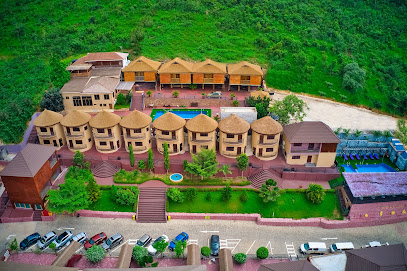
Sky Plus Hotel and Resorts
Experience luxury and tranquility at Sky Plus Hotel and Resorts, where breathtaking views and exceptional service create unforgettable memories in Ho, Ghana.
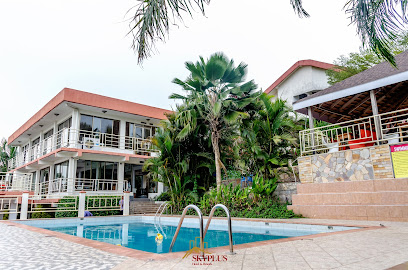
Freedom Hotel
Discover comfort and local charm at Freedom Hotel in Ho, your ideal base for exploring the vibrant culture and attractions of Ghana.
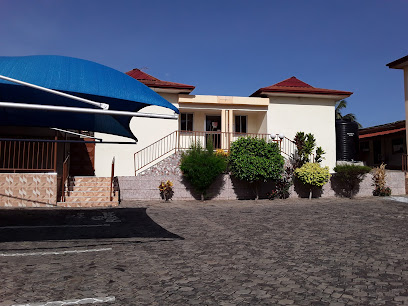
Boti Waterfalls
Discover the enchanting beauty of Boti Waterfalls, a natural gem in Ghana offering stunning cascades and lush surroundings for an unforgettable experience.
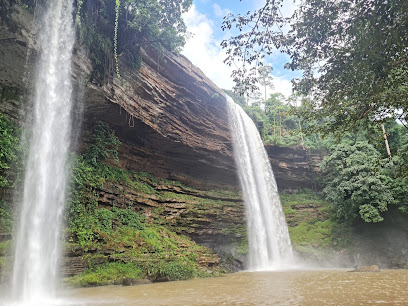
Jamestown Lighthouse
Discover the historical Jamestown Lighthouse in Accra, a stunning coastal landmark that showcases Ghana's rich maritime heritage and vibrant culture.
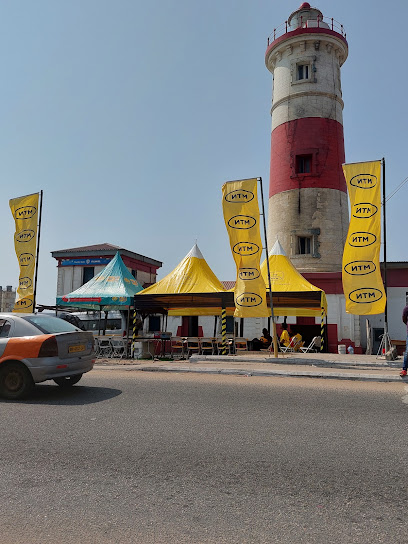
Osu Castle
Explore the historical significance of Osu Castle in Accra, a vital site reflecting Ghana's past and its role in the transatlantic slave trade.
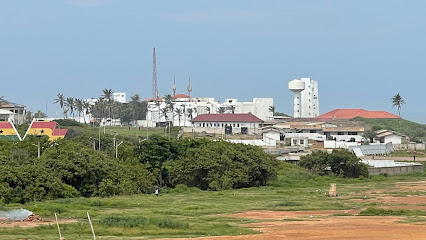
Tafi Atome Monkey Sanctuary And Cultural Village
Explore the Tafi Atome Monkey Sanctuary: a unique blend of wildlife encounters and rich cultural experiences in the heart of Ghana.
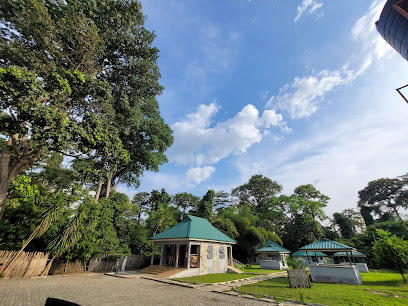
Wli Agumatsa Waterfalls
Experience the breathtaking beauty of Wli Agumatsa Waterfalls, Ghana's highest waterfalls, nestled in a lush tropical paradise.
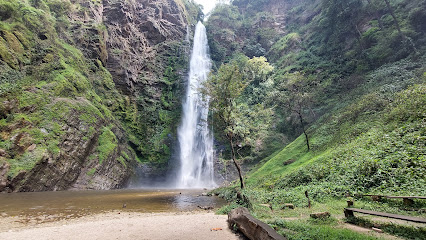
Shai Hills Resource Reserve
Explore the beauty of Shai Hills Resource Reserve, a wildlife haven in Ghana with breathtaking landscapes and rich cultural heritage.
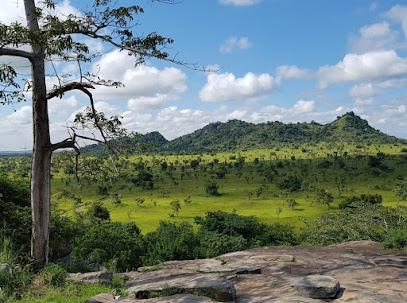
Umbrella Rock
Discover the breathtaking Umbrella Rock in Asiafo Amanfro, a unique natural attraction perfect for nature lovers and adventure seekers alike.
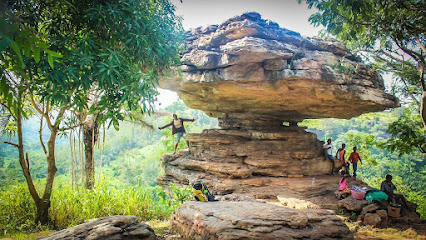
Volta Regional Museum
Experience the vibrant culture and history of the Volta Region at the Volta Regional Museum, a must-visit destination for every traveler.
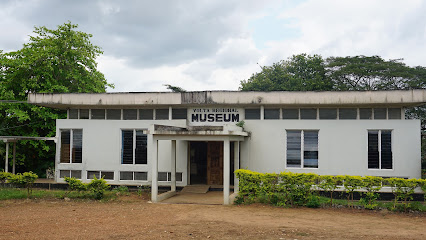
Ote waterfall
Experience the serene beauty of Ote Waterfall in Amedzofe, a natural wonder perfect for nature lovers and adventure seekers.
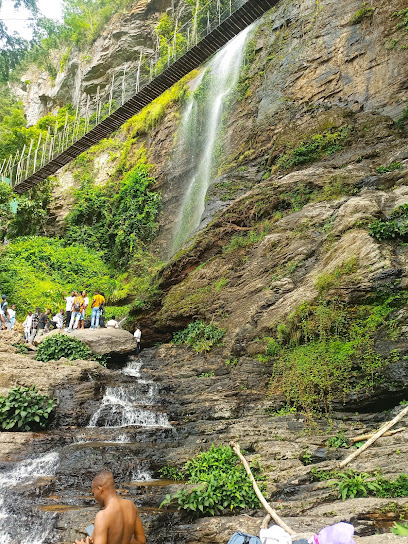
Lower Volta Bridge
Experience the breathtaking views and vibrant culture at Lower Volta Bridge, a vital link and scenic landmark in Sogakope, Ghana.
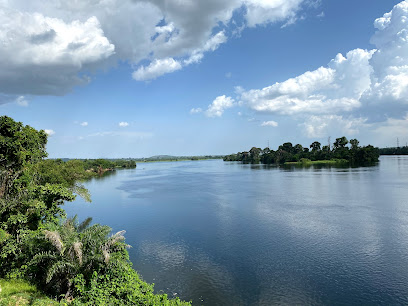
ADOMI (ADOME) BRIDGE
Explore the scenic Adomi Bridge in Ghana, a stunning architectural wonder offering breathtaking views and rich cultural experiences.
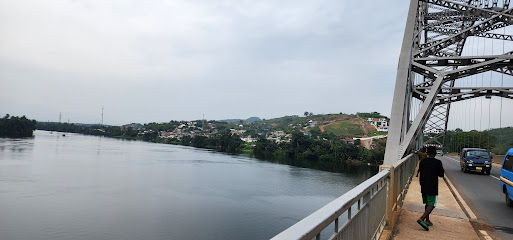
Unmissable attractions to see
Wli Waterfalls main office
Experience the breathtaking beauty of Wli Waterfalls in Ghana, the highest waterfall in West Africa, surrounded by lush rainforest and rich biodiversity.
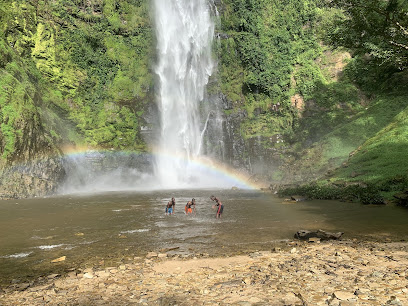
Tafi Atome Monkey Sanctuary And Cultural Village
Discover the magic of Tafi Atome Monkey Sanctuary, where playful primates and rich Ghanaian culture await your exploration.
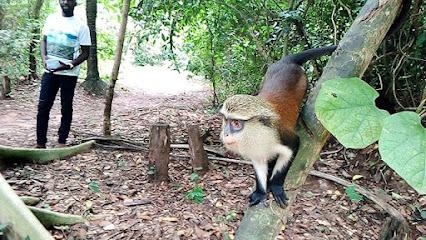
Tafi Atome Monkey Sanctuary And Cultural Village
Explore Tafi Atome Monkey Sanctuary for a unique blend of wildlife encounters and rich cultural experiences in Ghana's stunning landscapes.
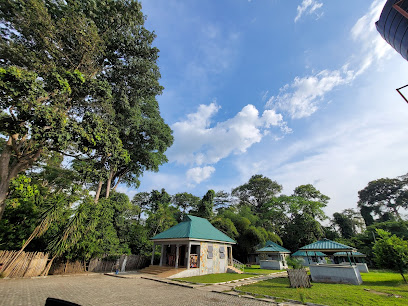
Chateau Viale
Explore the cultural heritage of Togo at Chateau Viale, a captivating museum in the heart of Agomé Yo, showcasing art, tradition, and history.
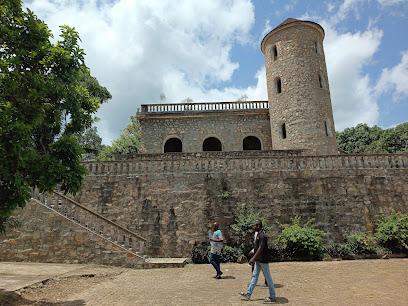
Mount Afadja
Explore the breathtaking heights of Mount Afadja, Ghana's highest peak, and experience nature's beauty and local culture in the Volta Region.
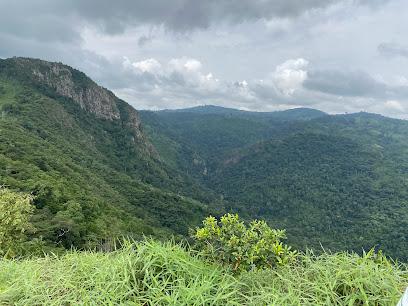
Volta Regional Museum
Explore the diverse culture and history of the Volta Region at the Volta Regional Museum, showcasing local traditions and artifacts.
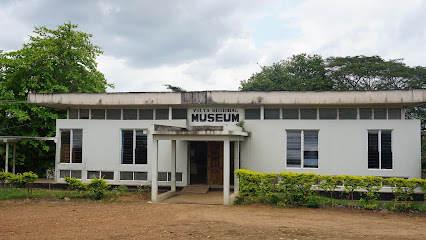
Ote waterfall
Discover the stunning Ote Waterfall in Amedzofe, a hidden treasure surrounded by lush nature and breathtaking views, perfect for nature lovers and adventurers.
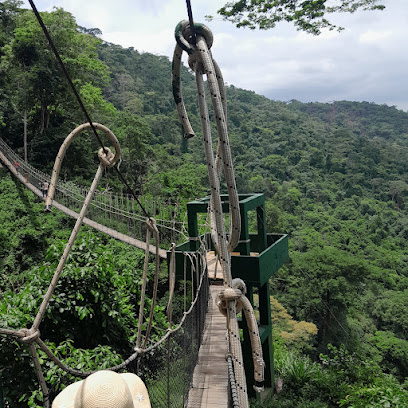
Mount Afadja
Discover the breathtaking beauty of Mount Afadja, Ghana's highest peak, where adventure meets nature and culture.
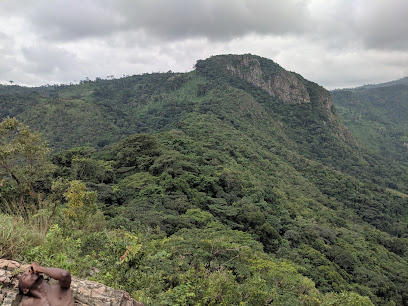
Logba Tota
Experience the serenity and natural beauty of Logba Tota, an enchanting tourist attraction in Ghana, perfect for adventure seekers and nature lovers alike.
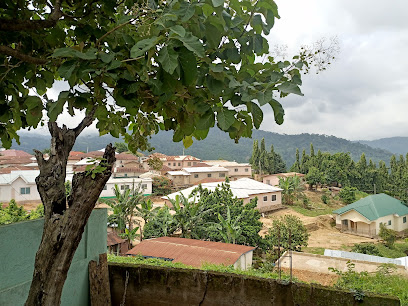
Anlokordzi Children's Park
Discover the joy of family fun at Anlokordzi Children's Park in Ho, a perfect blend of play, nature, and community for visitors of all ages.
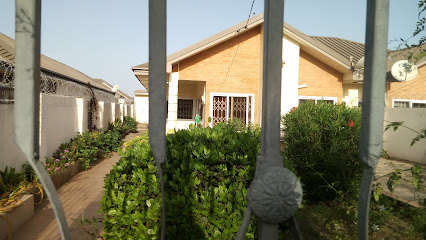
Mount Agou
Explore the stunning heights of Mount Agou, Togo's tallest peak, and discover breathtaking landscapes and rich cultural experiences in one remarkable destination.
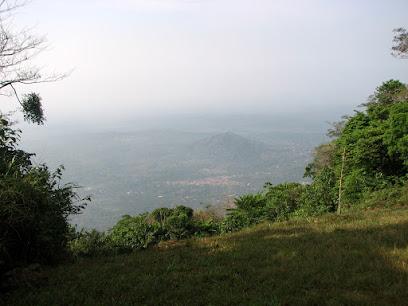
Mt. Gemi
Experience the breathtaking views and rich biodiversity of Mt. Gemi in Amedzofe, Ghana—a must-visit destination for nature lovers and adventure seekers.
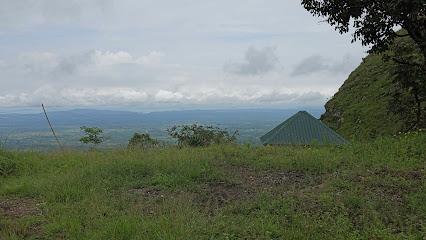
Ote Falls
Discover the tranquil beauty of Ote Falls in Amedzofe, a must-visit hiking area that offers breathtaking views and a serene escape into nature.
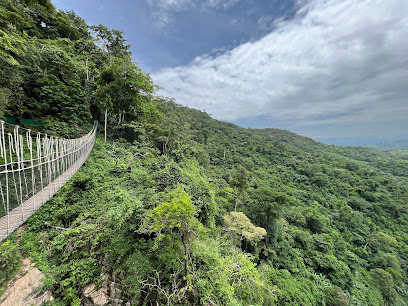
Liati Soba, Volta Ghana
Explore Liati Soba in Volta, Ghana - a natural paradise rich in culture and adventure for every traveler seeking unique experiences.
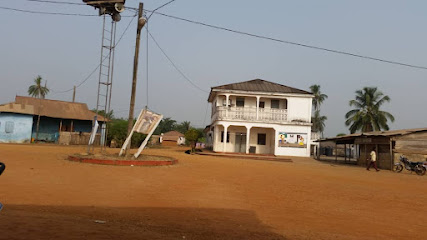
Mt. Gemi
Experience the breathtaking beauty of Mt. Gemi in Amedzofe, a perfect blend of adventure, culture, and stunning views in Ghana's Volta Region.
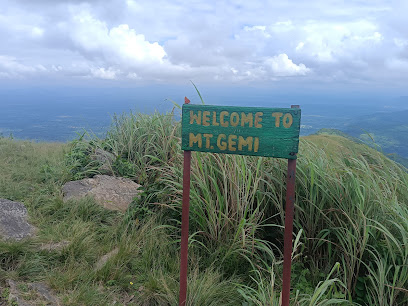
Essential places to dine
Agbenohevi Food joint
Savor authentic Ghanaian cuisine at Agbenohevi Food Joint in Ho - where every meal is a celebration of culture and flavor.
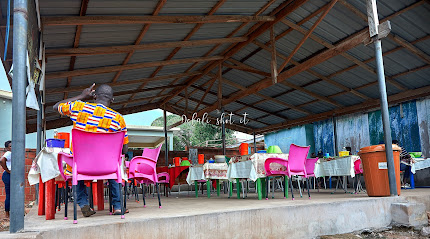
Lord's Garden Restaurant
Experience authentic Ghanaian cuisine in the serene setting of Lord's Garden Restaurant in Ho - perfect for every food lover.
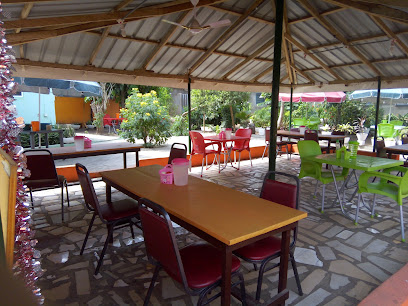
Hillview Chop Bar
Discover the flavors of Ghana at Hillview Chop Bar, where authentic cuisine meets a lively atmosphere in the heart of Ho.
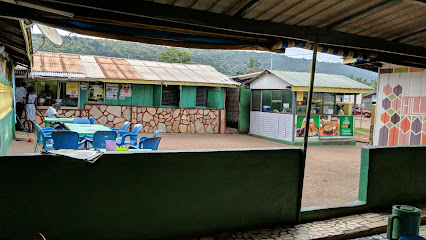
Red Dot Restaurant
Experience authentic Ghanaian flavors and warm hospitality at Red Dot Restaurant in Ho - a culinary haven for every traveler.
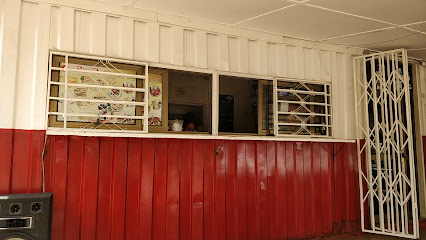
Homemade Da Abra Restaurant
Discover Homemade Da Abra Restaurant: A Taste of Authentic Ghanaian Cuisine in Ho with Fresh Ingredients and Warm Hospitality.
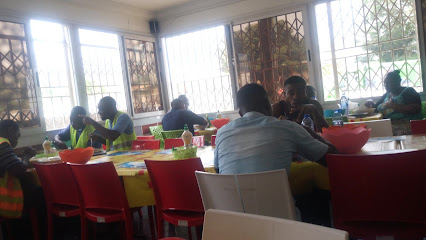
Christian Gardens Restaurant
Discover culinary delights at Christian Gardens Restaurant in Ho - where local flavors meet global cuisine.
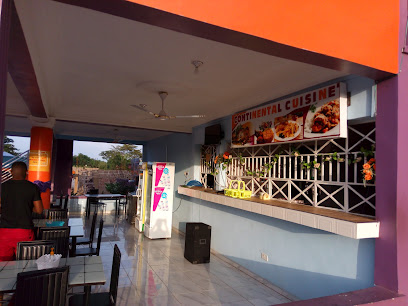
Depot View
Experience authentic Ghanaian grilling at Depot View in Ho – where local flavors meet lively ambiance.
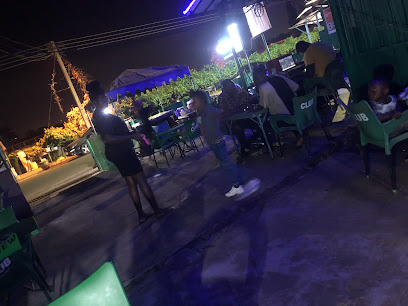
ESTATE KITCHEN
Discover the flavors of Ghana at Estate Kitchen - a culinary haven offering diverse dishes in an inviting atmosphere.
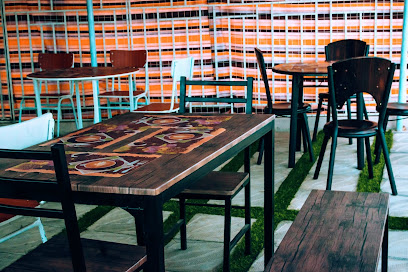
In-n-out chillies
Experience authentic Ghanaian cuisine at In-n-Out Chillies in Ho, where every meal is a celebration of local flavors and hospitality.
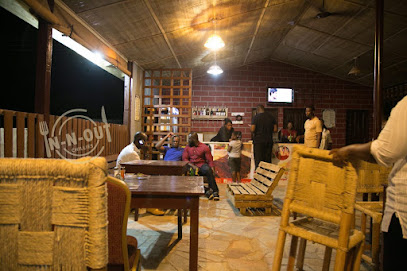
JS Cafe
Experience fast food at its finest at JS Cafe in Ho - savor local flavors and international favorites in a welcoming atmosphere.
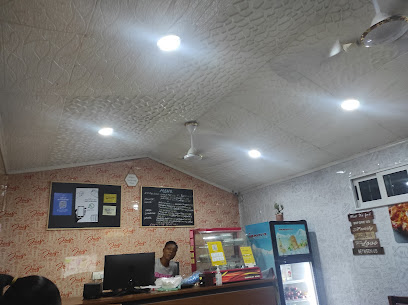
Prisons Canteen
Discover authentic Ghanaian cuisine at Prisons Canteen in Ho - where local flavors meet warm hospitality.
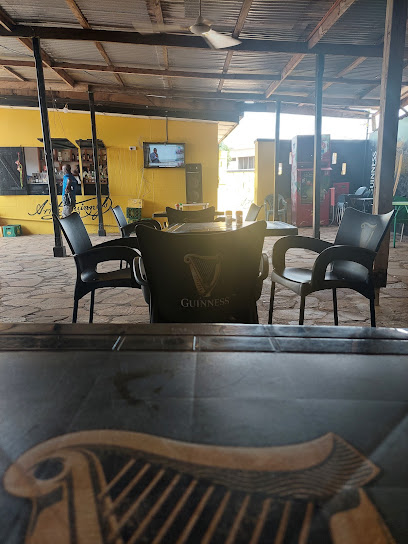
Bush Canteen (Chop Bar)
Experience authentic Ghanaian flavors at Bush Canteen in Ho – where every meal tells a story.
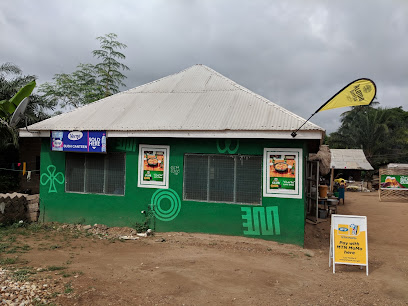
Big Dreams Mini Mart and Kitchen
Discover authentic Ghanaian flavors at Big Dreams Mini Mart and Kitchen in Ho – where culinary delights meet warm hospitality.
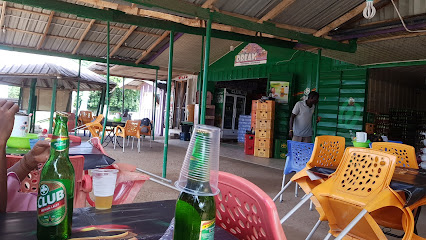
Mothers Inn Restaurant
Discover authentic Ghanaian cuisine at Mothers Inn Restaurant in Ho, where local flavors meet warm hospitality for an unforgettable dining experience.
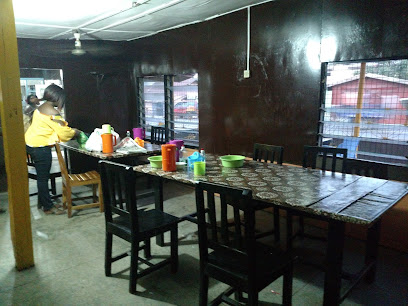
Shielda
Experience authentic Ghanaian cuisine at Shielda in Ho—an affordable dining destination with delicious flavors and welcoming atmosphere.
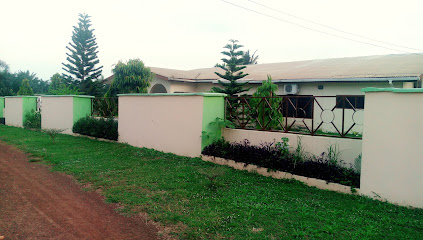
Markets, malls and hidden boutiques
Melcom Ho Volta branch
Explore Melcom Ho, the bustling shopping mall in Volta Region, where you can find everything from groceries to electronics in one convenient location.
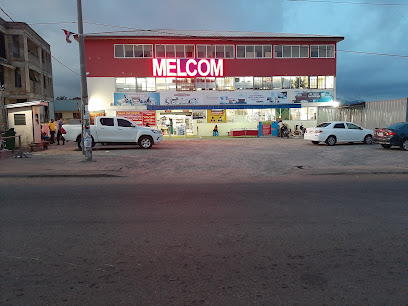
BY HIS GRACE SHOP
Explore local flavors and essentials at BY HIS GRACE SHOP, a charming grocery store in Ho, Ghana.
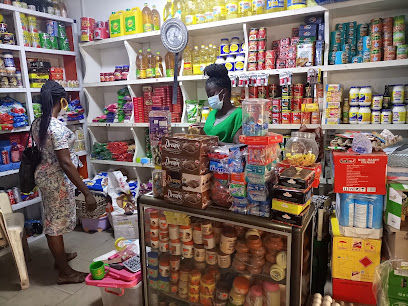
Sasa Clothing
Explore vibrant fashion at Sasa Clothing in Ho, Ghana, where traditional craftsmanship meets modern style in a unique shopping experience.
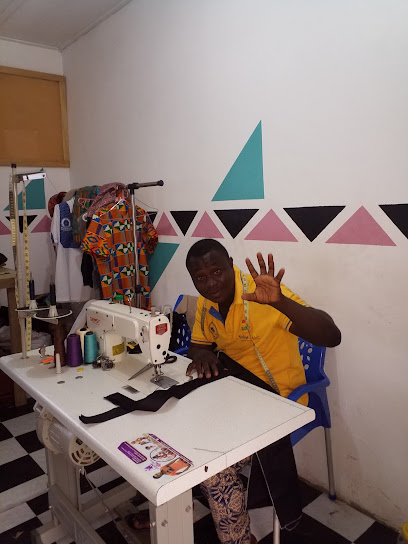
Elegance Fashion
Discover unique Ghanaian styles at Elegance Fashion in Ho, where contemporary trends meet traditional craftsmanship.
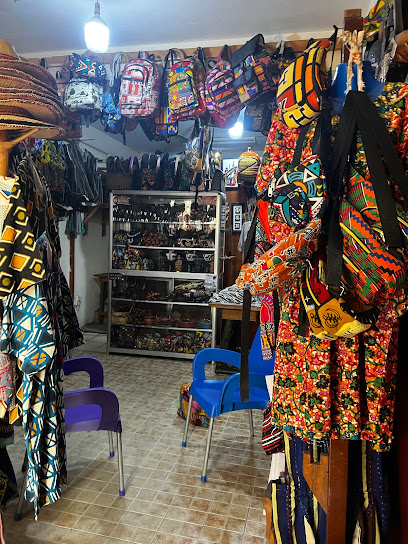
Drip Museum
Discover unique Ghanaian fashion at Drip Museum in Ho, where local craftsmanship meets contemporary style for a vibrant shopping experience.
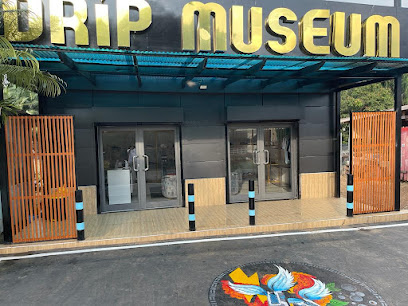
Apparel King
Explore the latest fashion trends at Apparel King in Ho, Ghana – your go-to destination for stylish clothing and accessories.

The Scentrix GH - Ho
Discover the essence of Ghana at The Scentrix GH in Ho, a perfume paradise with unique local and international fragrances.
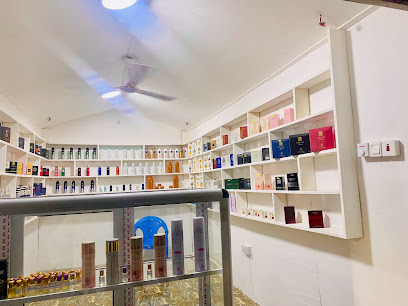
GLORIMANUEL(GM)Unisex Collection
Explore diverse and trendy fashion at GLORIMANUEL Unisex Collection in Ho, Ghana, where unique styles await every visitor.

ExcelMall
Discover the vibrant charm of ExcelMall in Ho, Ghana, where local fashion meets trendy accessories in a bustling market atmosphere.
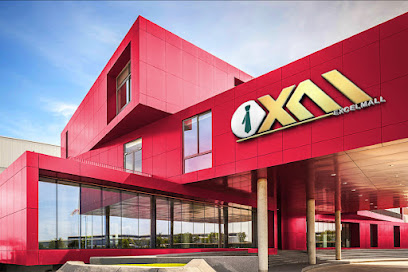
Seffy Kreation
Discover exquisite clothing and accessories at Seffy Kreation, a unique shopping destination in Ho, Ghana, reflecting vibrant local culture and style.

NGASHOP
Discover the bustling NGASHOP in Ho, Ghana, where shopping, dining, and local culture come together in a vibrant atmosphere.

JUST GIFT SHOP
Explore the vibrant culture of Ghana through unique souvenirs at Just Gift Shop in Ho, the perfect stop for unforgettable gifts.

Bird Fashion
Discover unique fashion and home goods at Bird Fashion in Ho, where local culture meets contemporary style.

A & A FUNERAL SERVICES
Discover authentic Ghanaian ceremonial attire at A & A Funeral Services in Ho, offering a blend of local tradition and craftsmanship.

Wonder World, Ho Ghana
Explore the vibrant offerings of Wonder World, a unique general store in Ho, Ghana, showcasing local crafts and authentic Ghanaian culture.
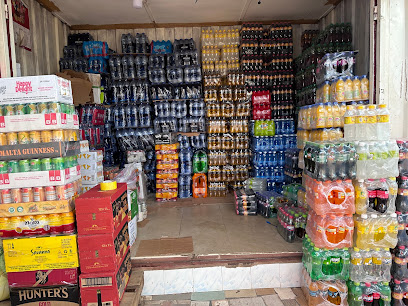
Essential bars & hidden hideouts
Mirage Pub
Experience the vibrant nightlife at Mirage Pub in Ho, Ghana, where lively music and a welcoming atmosphere await every visitor.
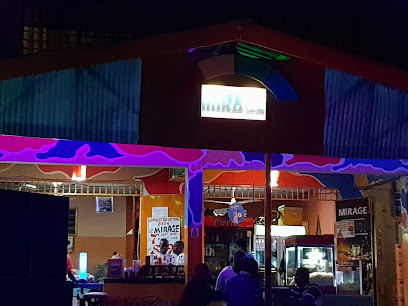
De-famacy
Experience the vibrant nightlife of Ho at De-famacy, a lively bar offering a unique mix of local flavors and friendly vibes.
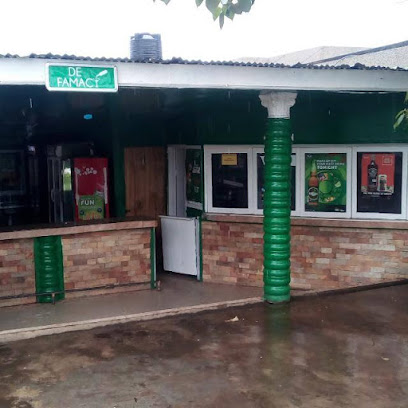
5-Star Pub (Big Boys Club)
Discover vibrant nightlife and local culture at 5-Star Pub (Big Boys Club) in Ho, Ghana, a must-visit destination for tourists.
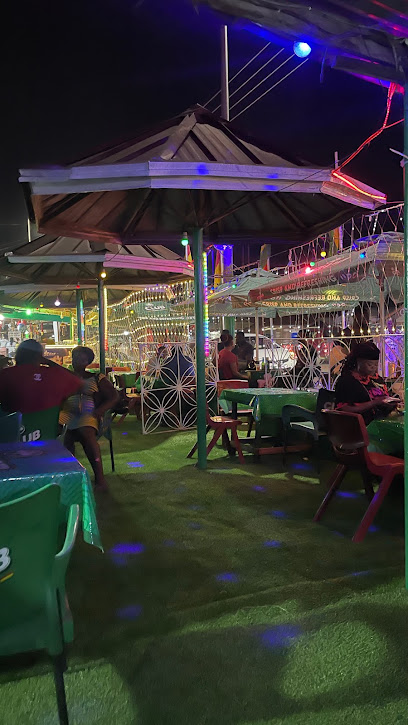
Shepherd Home Night Club & Restaurant
Discover the heartbeat of Ho's nightlife at Shepherd Home Night Club & Restaurant, where local cuisine meets infectious energy for an unforgettable evening.
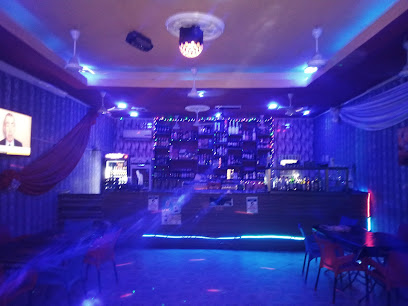
THE GEIST BAR
Discover The Geist Bar in Ho, Ghana, where a serene atmosphere meets a diverse drink menu, perfect for unwinding and connecting with friends.
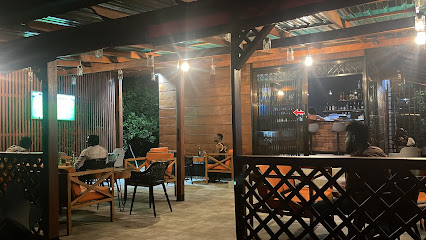
Pandora Spot
Discover the vibrant nightlife of Ho at Pandora Spot, a local bar offering affordable drinks and a taste of Ghanaian culture.
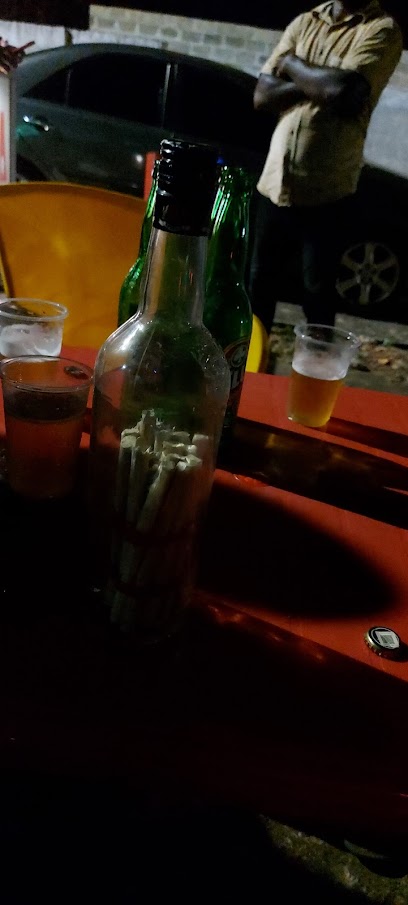
Cheers & Sip
Discover the lively Cheers & Sip pub in Ho, Ghana, where great drinks and an inviting atmosphere meet for unforgettable experiences.
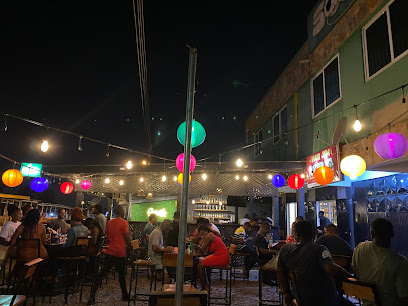
De joint Pub
Discover the lively ambiance of De Joint Pub, a popular bar in Ho, Ghana, where locals and travelers gather for drinks and live music.
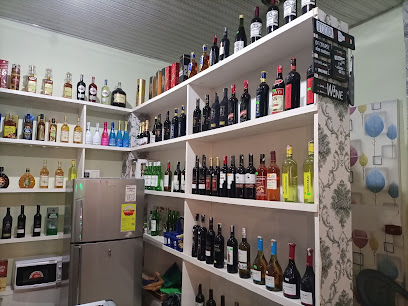
The box
Experience the vibrant nightlife at The Box in Ho, where exceptional drinks meet a lively atmosphere for unforgettable evenings.
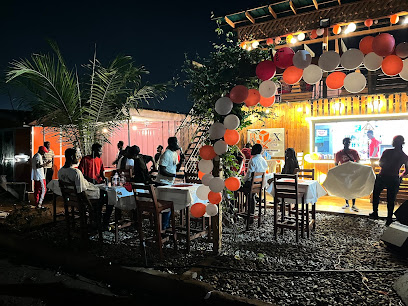
Hotbird Bar & Grill
Experience the vibrant flavors of Ghana at Hotbird Bar & Grill, where grilled delicacies meet an inviting atmosphere in the heart of Ho.

St John's pub
Experience the vibrant local culture at St John's Pub in Ho, where friendly faces and refreshing drinks await you.

Webs' Pub
Discover the heart of Ho's nightlife at Webs' Pub, a vibrant spot filled with local flavors and lively entertainment.
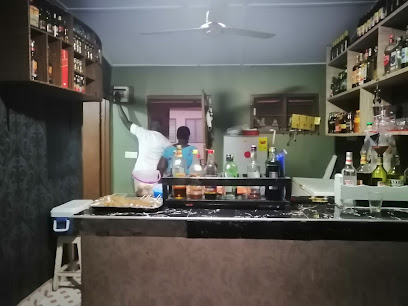
Pub De Grace Hotel
Experience the vibrant nightlife and authentic local flavors at Pub De Grace Hotel, a must-visit bar in Ho, Ghana.
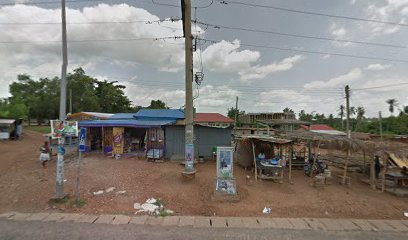
Magava Chop Bar
Discover the vibrant flavors of Ghana at Magava Chop Bar, a must-visit spot for an authentic culinary experience in Ho.
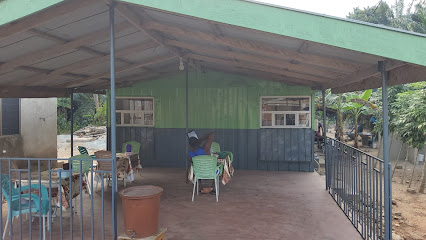
Bula Lounge
Discover the vibrant Bula Lounge in Ho, where relaxation meets local flavors in a cozy atmosphere, perfect for tourists seeking a unique experience.

Travel experiences inspired by this city
Explore more travel diariesLocal Phrases
-
- HelloMi kɔɔ
[mee koh] - GoodbyeDaa
[dah] - YesAane
[ah-neh] - NoNnɛ
[nyeh] - Please/You're welcomeMi ɖe
[mee deh] - Thank youMi ɖe ɖe
[mee deh deh] - Excuse me/SorryŊutɔ
[nyoo-toh] - How are you?Woo gɔmeɖe?
[woh goh-meh-deh] - Fine. And you?Eɖea. Ga gɔmeɖe?
[eh-deh-ah. gah goh-meh-deh] - Do you speak English?Woo ŋutɔ ƒe ŋlisiwo?
[woh nyoo-toh feh en-glee-see-wuh] - I don't understandMi nɔvi eyi
[mee noh-vee ey-yee]
- HelloMi kɔɔ
-
- I'd like to see the menu, pleaseMi kɔ ɖe menu, mi ɖe
[mee koh deh meh-noo, me deh] - I don't eat meatMi nɔvi nuɖu
[mee noh-vee noo-thoo] - Cheers!Ayo!
[ah-yoh] - I would like to pay, pleaseMi kɔ ɖe kɛkɛ, mi ɖe
[mee koh deh keh-keh, me deh]
- I'd like to see the menu, pleaseMi kɔ ɖe menu, mi ɖe
-
- Help!Ɖe aŋlɔ!
[deh ah-nyoh-loh] - Go away!Vaa!
[vah] - Call the Police!Ŋutɔ tsɔŋlɔ ɖe
[nyoo-toh tsoh-nyoh-loh deh] - Call a doctor!Ŋutɔ ŋutɔ ɖe
[nyoo-toh nyoo-toh deh] - I'm lostMi naŋlɔ
[mee nah-nyoh-loh] - I'm illMi naŋlɔ
[mee nah-nyoh-loh]
- Help!Ɖe aŋlɔ!
-
- I'd like to buy...Mi kɔ fia...
[mee koh fee-ah] - I'm just lookingMi ɖe maŋlɔ
[mee deh mah-nyoh] - How much is it?Ɖe ɖe eye ɖe?
[deh deh ey-yeh deh] - That's too expensiveEyayi eyi
[ey-yah-yee ey-yee] - Can you lower the price?Woo ŋutɔ si hafianu?
[woh nyoo-toh see hah-fee-ah-noo]
- I'd like to buy...Mi kɔ fia...
-
- What time is it?Ɖe aŋlɔ eyi?
[deh ah-nyoh-loh ey-yee] - It's one o'clockEyi kɔ aya
[ey-yee koh ah-yah] - Half past (10)Hafianu kɔ (10)
[hah-fee-ah-noo koh (10)] - MorningDɔɔ
[doh] - AfternoonƉeɖe
[deh-deh] - EveningDaa
[dah] - YesterdayƉeɖɔ
[deh-doh] - TodayDade
[dah-day] - TomorrowDaɖe
[dah-deh] - 1Ayata
[ah-yah-tah] - 2Yiyata
[yee-yah-tah] - 3Atata
[ah-tah-tah] - 4Anan
[ah-nahn] - 5Anam
[ah-nahm] - 6Afia
[ah-fee-ah] - 7Ason
[ah-sohn] - 8Asoɖi
[ah-soh-dee] - 9Asovla
[ah-soh-vlah] - 10Agbɛ
[ah-gbeh]
- What time is it?Ɖe aŋlɔ eyi?
-
- Where's a/the...?Ɖe... na...
[deh nah] - What's the address?Ɖe tsɔɔ na...
[deh tsoh-oh nah] - Can you show me (on the map)?Woo ŋutɔ nɛ mi (le mapɔ) ?
[woh nyoo-toh neh mee (leh mah-poh) ?] - When's the next (bus)?Ayi ɖe ɖe (tro tro) ?
[ah-yee deh deh (troh-troh) ?] - A ticket (to ....)Tikiti (kɔ ....)
[tee-kee-tee (koh ....)]
- Where's a/the...?Ɖe... na...
History of Ho
-
The area now known as Ho has been inhabited for centuries, with the Ewe people being the predominant ethnic group. The Ewe migrated from the Niger River area in present-day Nigeria and settled in the Volta Region. Oral histories suggest that the Ewe people settled in Ho around the 15th century, establishing it as a crucial center for their communities.
-
In the late 19th century, the Volta Region, including Ho, came under German colonial rule as part of German Togoland. The Germans established administrative and commercial centers in the region, influencing local architecture and infrastructure. Ho became an important administrative center, hosting German colonial officers and facilitating trade and communication between the coast and the hinterlands.
-
Following Germany's defeat in World War I, German Togoland was divided between Britain and France. Ho and the surrounding areas were administered by the British as part of the British Mandate of Togoland. This period saw increased missionary activity, with the introduction of Western education and Christianity by European missionaries, which had a lasting impact on the cultural and religious landscape of Ho.
-
After Ghana gained independence in 1957, Ho continued to develop as a regional capital. The town saw improvements in infrastructure, education, and healthcare. Ho became known for its educational institutions, including the Ho Technical University and numerous high schools, earning a reputation as a center for learning and intellectual growth in the Volta Region.
-
Ho is renowned for its vibrant cultural heritage, particularly the annual Yam Festival, known locally as 'Asogli Yam Festival.' This festival, held in September, celebrates the yam harvest and is a time for the Ewe people to express gratitude to the gods and ancestors. The festival features elaborate durbars, traditional music and dance, and a display of rich Ewe customs and traditions.
-
In recent decades, Ho has experienced significant economic growth and modernization. The expansion of road networks, improvement of public services, and establishment of new businesses have transformed Ho into a bustling urban center. The town's strategic location and its role as the administrative capital of the Volta Region continue to attract investment and development, making it a dynamic and evolving city.
Ho Essentials
-
Ho is located in the Volta Region of Ghana. The nearest international airport is Kotoka International Airport in Accra, approximately 160 kilometers away. From Accra, you can take a bus or hire a private car to Ho. The journey typically takes around 3 to 4 hours by road. VIP and STC buses offer services to Ho from Accra. Alternatively, you can take a domestic flight to Ho Airport, which has recently started operating limited flights.
-
Within Ho, you can get around using taxis, which are readily available and relatively inexpensive. Shared taxis, known as 'trotros,' are also a common and affordable means of transport for short distances. For a more comfortable experience, you can rent a car, but be prepared for varying road conditions. Bicycles and motorbikes are also popular for getting around town.
-
The official currency in Ghana is the Ghanaian Cedi (GHS). Credit cards are accepted in some hotels, restaurants, and larger shops, but it is advisable to carry cash, especially when visiting smaller establishments and local markets. ATMs are available in Ho, but it is wise to withdraw sufficient cash before traveling to ensure you have enough funds for your needs.
-
Ho is generally considered a safe destination for tourists. However, it is always advisable to take standard precautions. Avoid walking alone at night in unfamiliar areas and keep an eye on your belongings in crowded places. While there are no specific high-crime areas targeting tourists, always stay vigilant and aware of your surroundings. Petty theft can occur, so keep your valuables secure.
-
In case of emergency, dial 112 for immediate assistance. The local police station is available in Ho, and there are several medical facilities, including the Ho Teaching Hospital, which provides comprehensive medical services. It is recommended to have travel insurance that covers medical emergencies. For minor health issues, there are pharmacies in town where you can purchase over-the-counter medications.
-
Fashion: Do dress modestly, especially when visiting religious sites and rural areas. Avoid wearing overly revealing clothing. Religion: Do respect local customs and traditions. Always remove your shoes before entering a home or place of worship. Public Transport: Do be respectful and give up your seat to elderly passengers on trotros. Don't eat or drink on public transport. Greetings: Do greet people with a handshake. A warm smile and a nod of the head are also appreciated. Eating & Drinking: Do try local delicacies and accept food offerings graciously. Don't refuse hospitality, as it is considered impolite.
-
To experience Ho like a local, visit the vibrant Ho Central Market where you can buy fresh produce and traditional goods. Engage with locals, as they are often friendly and willing to share stories about the region's history and culture. Don't miss visiting the Kente weaving villages nearby, where you can see traditional weaving techniques and purchase authentic Kente cloth. For a unique experience, take a hike up Mount Adaklu, offering stunning views of the surrounding landscape.
Trending Landmark in Ho
-
Kwame Nkrumah Memorial Park & Mausoleum
-
Volta Serene Hotel
-
Sky Plus Hotel and Resorts
-
Freedom Hotel
-
Boti Waterfalls
-
Jamestown Lighthouse
-
Osu Castle
-
Tafi Atome Monkey Sanctuary And Cultural Village
-
Wli Agumatsa Waterfalls
-
Shai Hills Resource Reserve
-
Umbrella Rock
-
Volta Regional Museum
-
Ote waterfall
-
Lower Volta Bridge
-
ADOMI (ADOME) BRIDGE
Nearby Cities to Ho
-
Things To Do in Kpalimé
-
Things To Do in Notse
-
Things To Do in Lomé
-
Things To Do in Koforidua
-
Things To Do in Atakpamé
-
Things To Do in Aneho
-
Things To Do in Lokossa
-
Things To Do in Accra
-
Things To Do in Ouidah
-
Things To Do in Cotonou
-
Things To Do in Kumasi
-
Things To Do in Porto-Novo
-
Things To Do in Cape Coast
-
Things To Do in Sekondi-Takoradi
-
Things To Do in Takoradi












